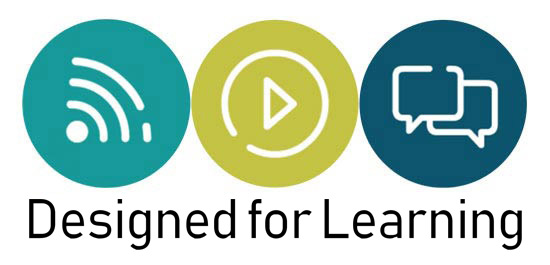01 Mar Learning Technologies 2012 Show Review
I’m always so late with my post event blogs, but then they say that you should always leave some distance between the experience and your reflection on it. This one is especially late because my website was hacked via some rogue WordPress plug-ins.
I have been attending the Learning Technologies Show (I’m not describing the conference here) almost since it started back in 1999. In the early days it was dominated by learning platforms and systems – primarily LMS’ but also KM and Talent Management systems. Since then it has re-balanced somewhat in favour of content, and these days even the technologies are so much more accessible (and affordable). In particular, the rise of DIY authoring tools and learner friendly LMS’ combined with the focus on learning content has resulted in an event that is as much about learning (or at least learning content) as it is about technology.
I spent two days at the show with a part of each day on the WillowDNA stand. I managed to see some of the free seminars on the floor of the show but didn’t get the chance to participate in the conference. Last year there was some criticism that the conference and the show were out of step but then this is a problem with all conference/show combinations. Emergent ideas don’t productise very well – there needs to be healthy signs of an emerging market before savvy entrepreneurs will risk their cash.
Here are some of my reflections of the show.
e-Learning Content
All the key bespoke content developers were there including Kineo, Epic, Brightwave, Line, Saffron and IMC. Sponge were also there with a refreshed stand and the same yummy sponge cakes. A new player on the content development front was Purple Media – the stand was modelled on the cabin of an airliner – it looked good but suffered a little from putting form before function (just like their painfully slow Flash driven website – which degrades ungracefully on an iPad). Information Transfer had the most elegant stand complete with tulips and a sort of fung-shui feel in the midst of the chaos going on all around.
Off the shelf vendors included SkillSoft and Jenison. SkillSoft were a little cagey on whether their massive back catalogue would work successfully on mobile devices but Jenison’s categorisation of their content into Shapers, Express, Pathways etc. was a useful attempt to direct buyers to content that would be appropriate for different learning contexts and form factors (see my recent article on m-learning).
LMS’ and Platforms
On the LMS front there was a return for the two old boys – Saba and SumTotal. Certpoint were there as were Upside, NetDimensions, Kallidus and Coloni. Most encouragingly there were a variety of flavours of Moodle on show from Kineo, Epic, Webanywhere, Aardpress and Traineasy. I have always liked Moodle for its trainer centric approach so it’s great to see it finally coming of age in the non-education sector. Willow’s Pathway product is actually a sort of ‘Moodle lite’ aimed at the non-education market. So far it’s been really popular with developers of continuous professional development programmes (CPD)
Authoring Tools
As far as tools go the usual favourites were there including Adobe, Lectora, Seminar, Zenler, Luminosity and this year Articulate had their own stand manned by Don Freda and Gabe Anderson. They were demonstrating Storyline which as expected was creating a real buzz. They were handing out a Storyline brochure which includes a URL to download a FREE 30 day trial but also when I tried it you only get to register your interest. I’m guessing that Storyline will be available very soon though. The update to Studio is also in the pipeline but I got the impression that we won’t see that until Q4 2012. Kaplan ran mini-classroom sessions taking people through STT Trainer and Content Point (Atlantic Link) but these didn’t seem particularly busy. I just sense that now Mike Alcock has left the business Atlantic Link is going nowhere quickly.
I did a quick demo of Zenler with Rakesh Vallil. Zenler is a really good alternative to Articulate if you have limited budgets. I’m going to evaluate the latest version soon and write an accompanying blog post.
Mobile Learning
Of course mobile learning was high on lots of people’s agendas with mobile authoring solutions from a wide range of vendors but the solution that most impressed me was Epic’s GoMo. This authoring tool takes a straightforward approach to authoring for mobile devices. Articulate’s Storyline is also going to be able to publish content to mobile devices but it will do so on the iOS platform via the special Articulate app. I am on the Storyline beta programme but we have yet to see the ‘publish to HTML5’ option in the beta release. It’s not clear yet whether all the functionality that is available via Flash (Articulate’s standard publishing format) will be available on iOS and whether if publishing for a Flash enabled tablet whether Flash will still be recommended over HTML5.
Video for Learning
The rise of video as a ‘learning channel’ was also apparent at Learning Technologies with the biggest splash made by Fusion with their impressive mini-theatre focussing on 70/20/10 and informal learning through the medium of video. Fusion is the brainchild of ex Fuel CEO Steve Dineen and their ‘informal learning’ platform offers a refreshing change to the standard SCORM centric LMS.
Live Online Learning
Redtray are a custom content developer but their stand this year was majoring on CloudRooms – their own virtual classroom product. Clearly Redtray are confident that 2012 is going to the year that live online learning takes off!
Social Learning
There was some talk of this new ‘paradigm’ in the show but little evidence that any vendor had really developed anything approaching a full social learning solution. I guess that the interpretation of social learning is still a little vague in many people’s eyes so it’s difficult to pin down what features a social learning platform might provide. At LT2012 Fusion were probably closest to the mark with their Fuse product and I’m keen to investigate this, and the whole concept of social learning, more closely in 2012.
Fusion Universal is the first company to design a performance and support solution that addresses the whole 100% of learning. Up until now, nearly all learning suppliers have focused on only one component of the 70/20/10 principle – usually the 10% formal course part. www.fusion-universal.com
Of course the proponents of social and informal learning approaches will hate the idea that the concept could be ‘productised’ along the lines of a traditional LMS or KM type system but there is definitely a gap for a ‘learning sharing’ platform that really combines the best of formal and informal learning approaches.
Follow-up articles planned:
Review of Epic’s GoMo m-learning authoring tool
Evaluation of Zenler authoring software
Social Learning Unconfused








https://www.Waste-ndc.pro/community/profile/tressa79906983/
Posted at 17:25h, 06 AprilExcellent beat ! I wish to apprentice while you amend your site, how can i subscribe for a blog website?
The account aided me a acceptable deal. I had been tiny bit acquainted of this your broadcast provided bright clear idea https://www.Waste-ndc.pro/community/profile/tressa79906983/
Carrol
Posted at 15:11h, 17 AprilThis piece of wrting will help the internet visitors for building up new weblog or
even a weblog from star to end.
Feel free to surf to my web blog :: Carrol
Marquis
Posted at 15:38h, 18 AprilThanks very nuce blog!
my homepage :: Marquis